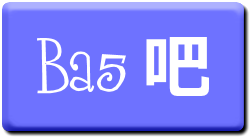Modal particle
Modal particles (also modal particles or MP) are an entity belonging to the particles of speech. They serve to express the attitude of a speaker with respect to the predicate or to judge them. You are a phenomenon of the spoken language. The German is considered a very rich language of modal particles, which is not self-evident. In many languages exist only a few ( eg, French) to no particles of this class, so that they represent a challenge to translators. Because of their high frequency, they also fall when learning German for non-native speakers in weight. This is especially problematic because the importance of both the class and the individual modal particles is not easy to grasp. Other languages in which modal particles play a greater role, are, for example, Greek, Indonesian, Japanese and Dutch.
- 6.1 Basics of the importance
- 6.2 Meaning of each modal particles
Definition
The modal particles are in the German language in addition to, for example, the focus particles or particles increase to the class of particles, ie the general unflektierbaren of speech that can not be attributed to the prepositions, adverbs or conjunctions. Since all particles are unflektierbar must if you want to make a sub- classification, differences in the behavior of individual particles are taken into account in the sentence. The exact characteristics that make modal particles, there was and is a long linguistic discussion. As generally accepted, the following criteria for recognizing the German modal particles are:
- You are unflektierbar (like all particles ).
- You do not change the truth value of an utterance.
- Modal particles can not be negated.
- You can not alone serve as an answer to a question. (A: " Perhaps the most has a nice sweater! " B: "What has he " An answer with "maybe" is not possible. )
- You can not at the beginning of a main clause before the finite verb are (they are not the run-up capable).
- Modal particles have homophones in other parts of speech.
- Modal particles are not be coordinated, which means they are not connectable with and or or.
On the importance of selected criteria
A striking feature of the mentioned list is that most of the criteria represent negative features ( " they can not ..."). Therefore, it is difficult to give a simple definition of what is a modal particle. More can be said for what they are not. In this section are discussed more fully at some important items on the list.
Modal particles do not alter the truth value
Consider to illustrate this point, the modal particle but. The following two examples show the same set, once without and once with modal particles. Is the fact that Peter has a good appetite during the utterance time of the first sentence is true, this is also true for the second
- " Peter has a great hunger. "
- " But Peter has a great hunger. "
This observation is linguistically not considered insignificant because nothing changes in this case, the addition or omission of a word in a sentence on its core message. To put it simply refers to the statement that is made with a sentence as its proposition, it can be true or false (under certain conditions situation ). So add the modal particles Proposition nothing to add, but are, so to speak over her. They give the listener clues as to how he is to classify the set statement.
Modal particles can not be negated
From this relationship out that they are not part of the proposition can also understand why modal particles can not be in an area where negations, since negations have an impact on truth values . The Nichtnegierbarkeit of modal particles can be explained by the fact that it is not to set links with them.
Modal particles are not capable vorfeld
In the so-called model fields of the German sentence, sentences by the positions of the verb, the so-called sentence bracket, divided into three parts: the run, midfield and Nachfeld, as in the following examples. The modal particle is found in the middle of each:
The particles " yes, probably, but" can not be put on the apron, possibly arising other meanings:
In the first example above, preceded by the modal particle ja in advance is unacceptable (marked by an * asterisk) in the second example prefixing is unacceptable if the modal particle is, as usual, unstressed; The third example shows that a stressed well indeed can stand in advance, but must be a different meaning (marked by the # hash sign ): This is not the modal particle, dealing with "probable" rewrite implies, but also a different kind of element marked contradiction to a previous utterance. In the last example, the sentence, preceded by can, however, be interpreted as interrogative sentence ( so that the addition of as - set is no longer possible ); hence it is a verb - initial sentence with but not as particles but as a conjunction in the left periphery of the sentence. - Total will thus be seen that modal particles can not occur in advance.
The main class of modal particles
At the main class of modal particles - which are sometimes called modal particles - but count also, just because, but, even, actually, about, stop, yes, sometimes, just yet, maybe and probably. One of the criteria from the list says that modal particles have homophones in other parts of speech. This means that same- sounding words can occur in other functions in the sentence. Thus, for example yes as an answer to a question and act belongs in this case to answer the so-called particles. Perhaps, for example, as Satzadverb ( " Perhaps the appointment tomorrow is " ) may be used, and so are in the run alone. So these homophones have partly a completely different behavior than described in the criteria list. However, in these cases, they also have a different meaning.
The peripheral class of modal particles
In addition there exists a class of modal particles (sometimes, particles with abtönender meaning ' or, abtönungsfähige particles ' called ), which are often also considered one of the modal particles, however, are capable of the apron. These include finely eg, whole, just, equal, just, only, after all, at all, and quiet. The significance of these particles does not change, whether they are in the first or in the middle, so they have no homophones in other parts of speech.
Restrictions
Modal particles subject to a number of difficult to describe constraints. So modal particles often can not be combined. Thus, although
- He is also clumsy.
Possible. Not, however, the opposite variant:
- * He is also but clumsy.
Further, the respective particles may occur only in certain Satzmodi. So can perhaps indeed in use exclamations ( "Did perhaps a nice car !"), But not in real questions ( " * Has perhaps a nice car ?").
The importance of modal particles
Fundamentals of importance
To understand exactly what mean modal particles, it is important to be clear about what exactly is important. Here, the importance of distinguishing between the two levels ( see, eg, speech act ). On the one hand there is the already indicated it were to be taken literally set content: the proposition. On the other hand there is the so-called illocution, the plot purpose of an utterance, or more simply: what should be expressed by the utterance of a sentence. This difference is important because with the same sentence in different contexts Miscellaneous can be meant. While the bulk of the words of a language contributes to the proposition that there are words (like the modal particles ) that do not belong, so to speak on a meta level to Proposition, but act in the illocutionary area. In many theoretical approaches therefore their significance is referred to models of shared knowledge ( Common Ground ) for explanation. Maria Thurmair summarizes the importance of modal particles for the illocutionary level as follows:
So it can be referenced with the modal particle yes, that expressed in the sentence knowledge is shared as already and thus considered to be provided or displayed with the particulate just that it is knowledge about which need not be discussed further.
Meaning of each modal particles
Examples of German modal particles are:
- Surprise at lack of information, for example, " I am just now been there before. " ( Implied: ". How you had to actually know " )
- Mitigation of an imperative, such as in "go but back again! ", " Read it again, what I have written you." rather than "go back again ", " Read again what I wrote you." A request may be made by the particles as their sharpness.
- ( Upper German replaced, " anyway " and more often ): expression previously overestimated important or urgent, "Then that is anyway obsolete / not important / necessary until tomorrow. "
- In Austrian dialects and the Austrian high-level language can be " eh" but also serve to affirm: " X is always guad z ' Fuass ": " X is but really good walk "
- Mark that it is an indication of the speaker ( in High German usually unmarked), such as " Des is fei important that the flowers are watered every day "
- In Thuringia "ge" ( Upper German and southwest Central German dialects and colloquial languages also " eh " ) takes over this function (always adjusted at end of block ). " It is important that the flowers are watered every day, ge"
- Implication that the addressee might have about the information has "I 'm just now been there before. "
- Gain joyful amazement as negative: "That's great / gross! "
- Implication that you myself one thing ( at the moment) can not meet, for example, " Can you make the time. " ( "I've got your hands free." )
- Implication of a failure by the addressee, for example, " Do you do that finally. " ("How long do I have to wait ?")
About the history of Modalpartikelforschung
The study of modal particles began in the 60s of the 20th century. Prior to the publication of Harald Weydts book modal particles. The German Modalwörter and their French equivalents in 1969 were modal particles dismissed as " meaningless Redefüllsel " or " Flick words ". Ludwig Reiners described them even as "lice in the fur of the language " with Harald Weydt and a dissertation on modal particles from 1963 began an extensive linguistic study of the modal particles.










